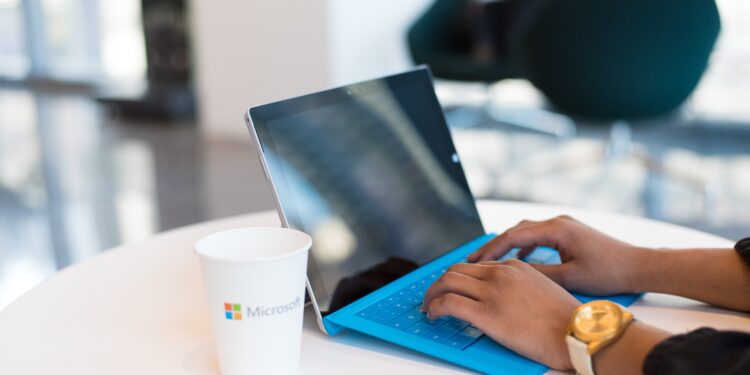Some veteran users probably remember a set of inventive commercials called “Get a Mac” (or simply “Mac vs. PC”) which was aired in the late 2000s. Back then, it was a very big deal for anyone to challenge Windows’ hegemony on the market. The popular and successful ads portrayed the “PC Guy” as somebody who is good with spreadsheets and has no creative imagination whatsoever. Has anything changed since then? Is Microsoft with its cheap Windows 10 keys for anybody to buy still, as Steve Jobs put it, “McDonald’s of the software market”?
An objective look on the market
Microsoft might actually never have been like that. If you think about the bigger picture on the market, there is one of many general rules which applies to this company: the monopolist takes all the blame in the world. No matter how sophisticated and well-designed Windows would have been in the ‘90s and 2000s, it would probably still get remarks like that from the competition and critics — simply due to its overwhelming market share. Any mistake of that one company affected most of the personal computer users on the market. Just try to imagine that great responsibility.
But Apple’s narration regarding the competition’s OS started to change and diminish over the years, not to say — to disappear almost completely. No more humorous anti-Windows ads. Only short remarks in scarce interviews, which is nothing out of ordinary. Since the release of Windows 10 Professional and Home editions there has been a relative peace in their undoubted competition. And you certainly won’t see many comparisons with Microsoft’s software in Apple’s Keynotes, the same goes for Android phone devices.
Differences in programming
MacOS is a closed system with applications functioning like sandbox disk images. They don’t unload much data into the hard drive, and function in a very strict OS environment. Windows apps, on the other hand, are being installed directly onto the hard drive, make changes in the registry and have direct access to system files. This is a major difference from a developer’s perspective, and has a certain influence on user experience.
Apps on MacOS generally work faster and crash less often than on Microsoft’s system. There’s a flip side to that coin — they have limited possibilities of altering the user interface and seem a little standardized, sometimes obviously minimalistic, and somewhat elegant of course.
What’s the real difference from the user’s perspective?
On the web, there‘s more and more opinions stating that Windows and MacOS don’t differ that much. Of course, there are basic disparities like the above-mentioned programming or user interface. Even the installation process is a bit different — in the Apple world there’s no equivalent of buying a cheap Windows 10 key and experimenting with a variety of hardware.
But it’s worth remembering that from a user’s perspective all the system software produced by Microsoft and Apple serve exactly the same purpose — primarily managing files, work, and media consumption. The fact that “Close”, “Minimize” and “Maximize” icons are on the left side in Windows and on the other side in MacOS is of minor importance. The same goes for slight differences in file management systems or limits of visual customization. These are all small details that can prevent us from seeing the bigger picture.
What is this bigger picture?
It is to be seen in major functionality dissimilarities that really sets these two systems apart. The first and the most important one according to many is gaming. It is worth remembering that worldwide video game industry market size is over 150 billion dollars. It’s a very serious branch of entertainment which MacOS users are generally stripped of. No Mac possesses a dedicated GPU at this point. There are some moves on the iPad product line to make it more accessible for gamers, but that process is just at its beginning. Windows users are able to use very strong GPUs and CPUs in order to play the latest AAA games — there is no such possibility on Mac.
The second major difference is security and privacy. MacOS, due to its smaller market share (generally around 9-10%) is more secure for a simple reason. The system is less popular than Windows, so there are less online threats that can damage it. A hacker can steal the banking data or even Windows 10 activation key from your PC. Although there are some viruses written specifically for MacOS, their number is not very high.
Conclusions and remarks
The competition between MacOS and Windows is not as fierce as it used to be. It seems that Apple has established a solid position on the personal computer market and has ceased aggressive anti-Microsoft marketing in this branch. The company’s main focus nowadays is the smartphone and tablet market, to which it has introduced major changes (introduction of edge-to-edge screen on iPhone or addition of keyboard with a trackpad for iPad converged with adding gamepad support).
It seems that Apple and Microsoft have reached a silent pact — hey don’t trouble one another much despite being competitors on paper in the personal computer market. And that’s a good thing, because consumers are not bombarded with aggressive marketing as much as they used to be. Now they simply buy a Windows 10 activation key or a Mac as a result of their own decisions, and not because of seeing yet another anti-Microsoft or anti-Apple ad.











